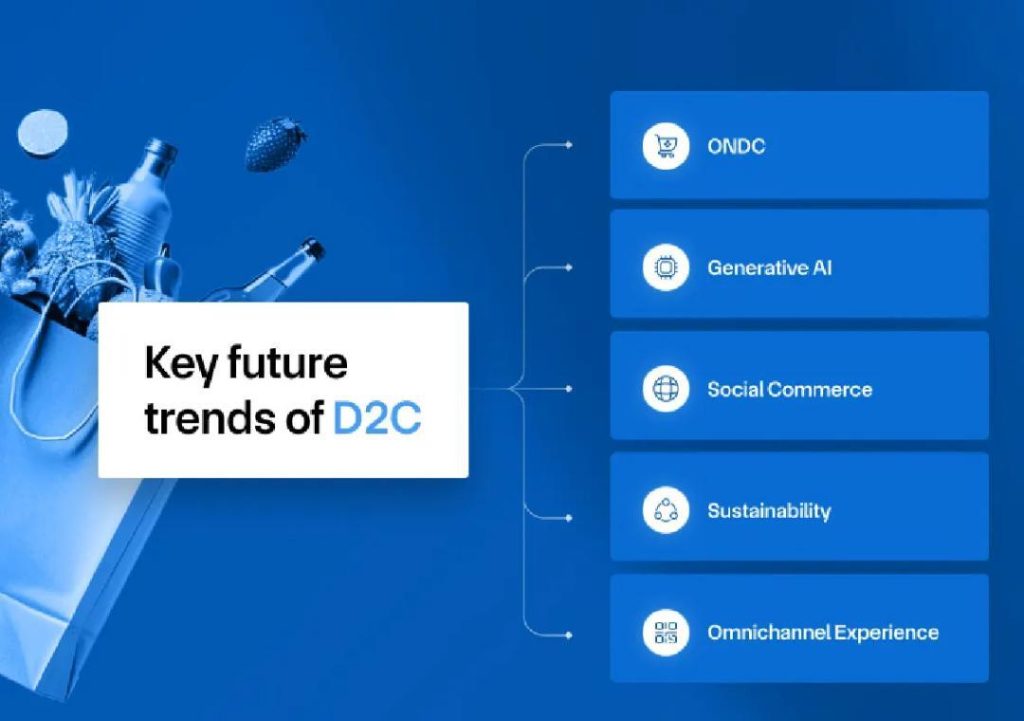
What’s Fueling the D2C Boom, and What Matters Next?
The Direct-to-Consumer (D2C) phenomenon is revolutionizing the way brands interact with customers, and India is at the forefront of this revolution. With over 800 active D2C brands, the Indian market is poised to hit $100 billion by 2025. So, what’s driving this growth, and what are the key factors that will determine success in this space?
Omnichannel Presence: The New Normal
In today’s digital age, consumers expect a seamless experience across all touchpoints. D2C brands that excel in omnichannel presence are those that offer a cohesive brand story, consistent messaging, and a unified customer experience across online and offline channels. This includes social media, email, SMS, in-store experiences, and even customer service interactions.
A study by Hootsuite found that 80% of consumers prefer to interact with brands through multiple channels, and 70% of consumers are more likely to shop from a brand that provides a seamless omnichannel experience. D2C brands that prioritize omnichannel presence can expect increased customer loyalty, higher conversion rates, and improved brand reputation.
Personalization: The Key to Customer Loyalty
Personalization is a crucial aspect of the D2C experience. By leveraging customer data and AI-powered tools, D2C brands can offer tailored experiences that resonate with individual customers. This includes personalized product recommendations, targeted marketing campaigns, and even customized packaging.
A study by Boston Consulting Group found that 73% of consumers prefer personalized marketing, and 61% of consumers are more likely to recommend a brand that offers personalized experiences. D2C brands that prioritize personalization can expect increased customer loyalty, higher retention rates, and improved brand advocacy.
Social Engagement: Building a Community
Social media has become an essential channel for D2C brands to engage with customers, build brand awareness, and drive conversions. By creating engaging content, responding to customer queries, and leveraging social media influencers, D2C brands can build a loyal community of customers.
A study by Sprout Social found that 71% of consumers are more likely to recommend a brand that responds to their social media messages, and 64% of consumers are more likely to make a purchase from a brand that offers social media-exclusive deals. D2C brands that prioritize social engagement can expect increased brand awareness, higher conversion rates, and improved customer loyalty.
Sustainability: The New Imperative
Sustainability has become a critical factor in the D2C landscape. Consumers are increasingly demanding eco-friendly packaging, sustainable production practices, and transparent supply chains. D2C brands that prioritize sustainability can expect increased brand loyalty, higher customer retention rates, and improved brand reputation.
A study by Nielsen found that 81% of global consumers feel strongly that companies should help improve the environment, and 73% of global consumers say they would definitely or probably switch to a brand that offers sustainable packaging. D2C brands that prioritize sustainability can expect increased customer loyalty, higher conversion rates, and improved brand reputation.
The New Winners in the D2C Space
So, what sets apart the D2C brands that are winning today? They are those that offer tailored experiences, own the customer journey directly, and resonate with audiences through purpose-driven storytelling and eco-conscious choices.
Some notable examples of successful D2C brands include:
- Nykaa, a beauty e-commerce platform that offers personalized product recommendations and a seamless customer experience across online and offline channels.
- BoAt, a lifestyle brand that leverages social media influencers to build brand awareness and drive conversions.
- MamaEarth, a skincare brand that prioritizes sustainability and offers eco-friendly packaging.
- Patanjali, a consumer goods brand that owns the customer journey directly and offers a personalized experience through its e-commerce platform.
The Future of D2C: Trends and Insights
As the D2C landscape continues to evolve, there are several trends and insights that will shape the future of this space. These include:
- Increased focus on sustainability and eco-friendliness
- Growing importance of social media influencers and user-generated content
- Rise of voice commerce and conversational commerce
- Growing demand for personalized experiences and tailored product recommendations
- Increased focus on customer loyalty and retention
In conclusion, the D2C boom is fueled by a combination of omnichannel presence, personalization, social engagement, and sustainability. D2C brands that prioritize these factors can expect increased customer loyalty, higher conversion rates, and improved brand reputation. As the landscape continues to evolve, it’s essential for D2C brands to stay ahead of the curve and adapt to changing consumer preferences and trends.
Source:
https://www.growthjockey.com/blogs/d2c-business-trends-insights-strategies






